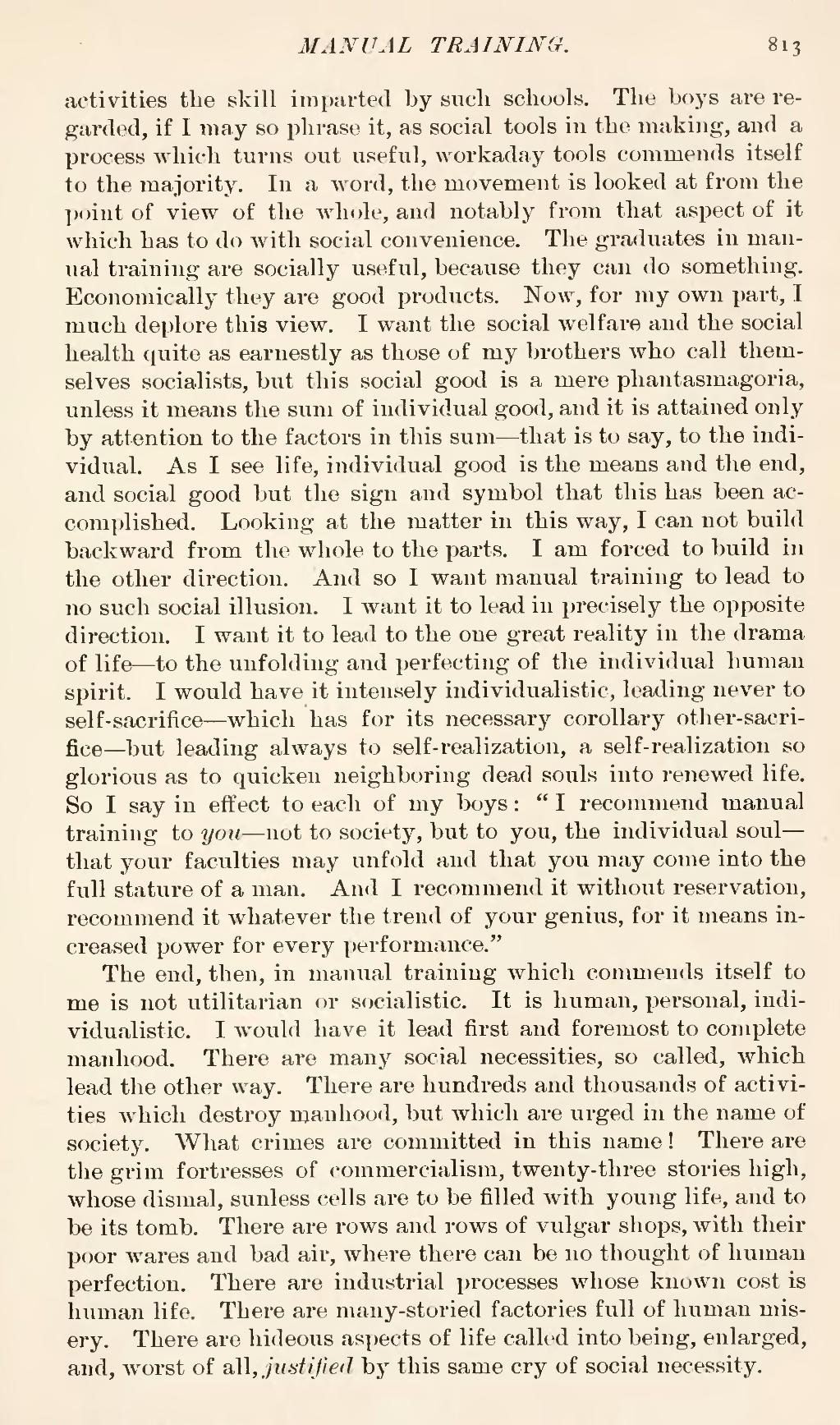activities the skill imparted by such schools. The boys are regarded, if I may so phrase it, as social tools in the making, and a process which turns out useful, workaday tools commends itself to the majority. In a word, the movement is looked at from the point of view of the whole, and notably from that aspect of it which has to do with social convenience. The graduates in manual training are socially useful, because they can do something. Economically they are good products. Now, for my own part, I much deplore this view. I want the social welfare and the social health quite as earnestly as those of my brothers who call themselves socialists, but this social good is a mere phantasmagoria, unless it means the sum of individual good, and it is attained only by attention to the factors in this sum—that is to say, to the individual. As I see life, individual good is the means and the end, and social good but the sign and symbol that this has been accomplished. Looking at the matter in this way, I can not build backward from the whole to the parts. I am forced to build in the other direction. And so I want manual training to lead to no such social illusion. I want it to lead in precisely the opposite direction. I want it to lead to the one great reality in the drama of life—to the unfolding and perfecting of the individual human spirit. I would have it intensely individualistic, leading never to self-sacrifice—which has for its necessary corollary other-sacrifice but leading always to self-realization, a self-realization so glorious as to quicken neighboring dead souls into renewed life. So I say in effect to each of my boys: "I recommend manual training to you—not to society, but to you, the individual soul—that your faculties may unfold and that you may come into the full stature of a man. And I recommend it without reservation, recommend it whatever the trend of your genius, for it means increased power for every performance."
The end, then, in manual training which commends itself to me is not utilitarian or socialistic. It is human, personal, individualistic. I would have it lead first and foremost to complete manhood. There are many social necessities, so called, which lead the other way. There are hundreds and thousands of activities which destroy manhood, but which are urged in the name of society. What crimes are committed in this name! There are the grim fortresses of commercialism, twenty-three stories high, whose dismal, sunless cells are to be filled with young life, and to be its tomb. There are rows and rows of vulgar shops, with their poor wares and bad air, where there can be no thought of human perfection. There are industrial processes whose known cost is human life. There are many-storied factories full of human misery. There are hideous aspects of life called into being, enlarged, and, worst of all, justified by this same cry of social necessity.
